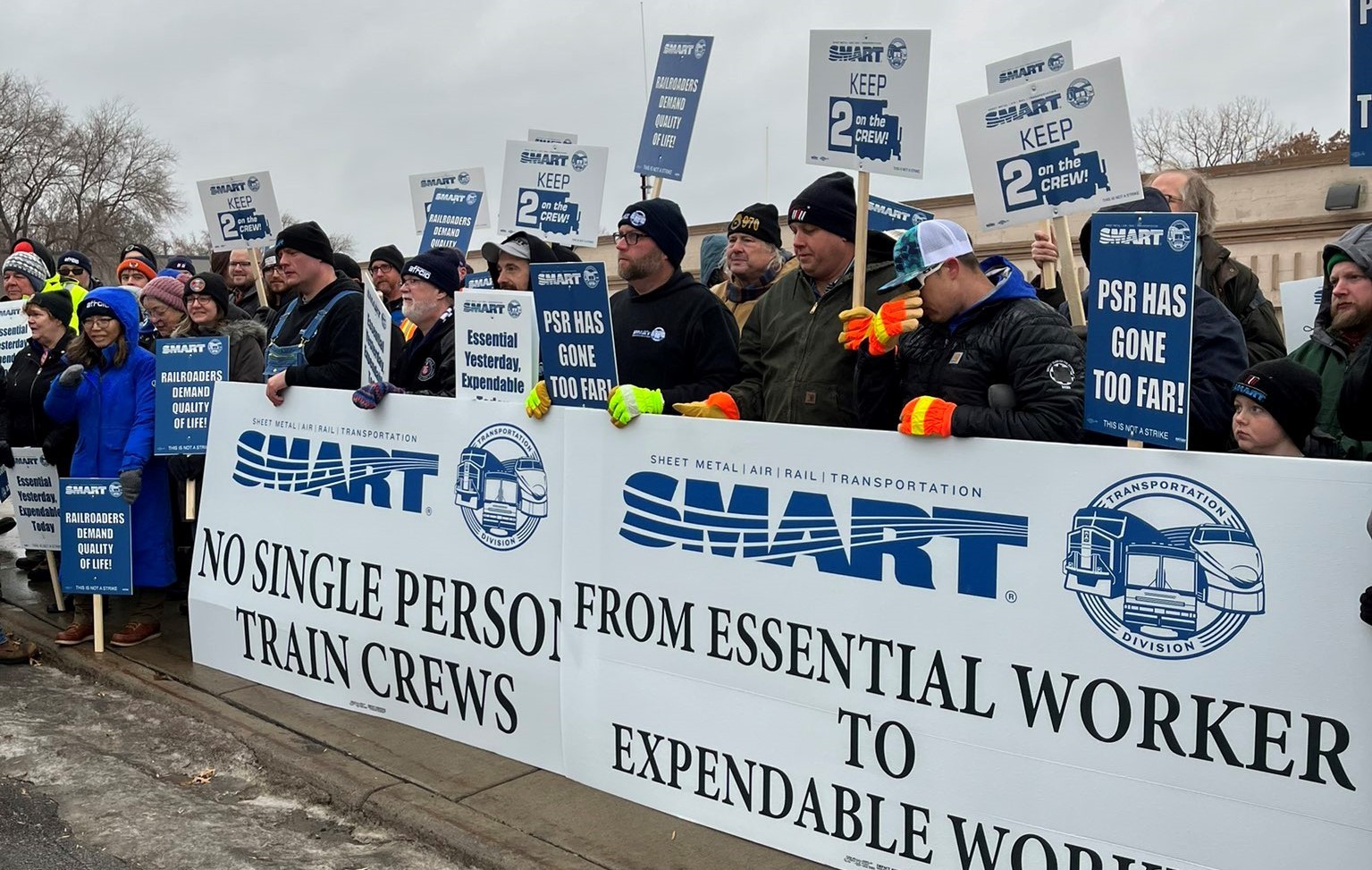It seems, at least for now, a crisis in the rail industry has been averted. Congressional approval of an imposed contract on rail workers in 12 different unions means there will be no strike and no labor disruptions for at least another three years. But even the business mouthpiece, The Wall Street Journal, sees some problems with that analysis and warns rail bosses to look at the underlying causes of so-called “supply chain issues”.
In a deep going discussion with Railroad Workers United (RWU) co-chair, Ross Grooters, and Twin Cities DSA members on Wednesday, December 14th, Grooters outlined the deep structural problems with the nation’s rail system. He explained that railroad owners are extracting enormous amounts of wealth from the rail system through stock buy-backs and dividends. Rather than investing in infra-structure and their workers, rail owners are simply stripping wealth away from railroads.
Grooters said a crisis point in the industry is coming. In fact we are already seeing signs of this with supply chain problems. The crisis is being created by a shortage of workers. Railroad track crews, rail yard workers, engineers and conductors are relatively well paid, but the grueling schedule means there is a constant churn in the workforce. Older workers leave as soon as they can retire, even with partial pensions, and newer workers decide the life of a rail worker is not for them. This was at the heart of the rail dispute, Grooters said. Rail workers want to be able to see their families and have some semblance of a life.
This was echoed at a rally on Tuesday at BNSF railroad’s Northtown Yard in Northeast Minneapolis. Approximately 100 rail workers and supporters gathered to talk about next steps in their fight for sick days, adequate staffing and rail safety. One member of SMART, the union which represents switchmen and brakemen, explained that they are so short staffed that it leads to mistakes being made as workers rush to perform their jobs. He also said the railroad wants to move to one person crews on freight trains.
Grooters believes the step for railroad workers is the fight for public ownership of railroads. Railroad bosses have proven they can’t run the nation’s rail system responsibly, he said. The nation’s interstate system, ports and airports are all publicly owned. It’s time for railroads to be as well. Railroad Workers United, a rank and file caucus of railroaders from all 12 unions, has put nationalization of railroads at the top of their agenda. RWU also plans to continue the long, hard process of organizing from below. This process appeared to get a shot in the arm on Wednesday when members of the Brotherhood of Locomotive Engineers ousted their president, who had supported the imposed contract, and elected a candidate more connected to the rank and file.
DSA needs to pay careful attention as the fight for public ownership develops. RWU will need allies like DSA to win. It may also be a chance for DSA members in Congress to stand more clearly against rail bosses than they did during the rail contract fight.
– by Kip H.

